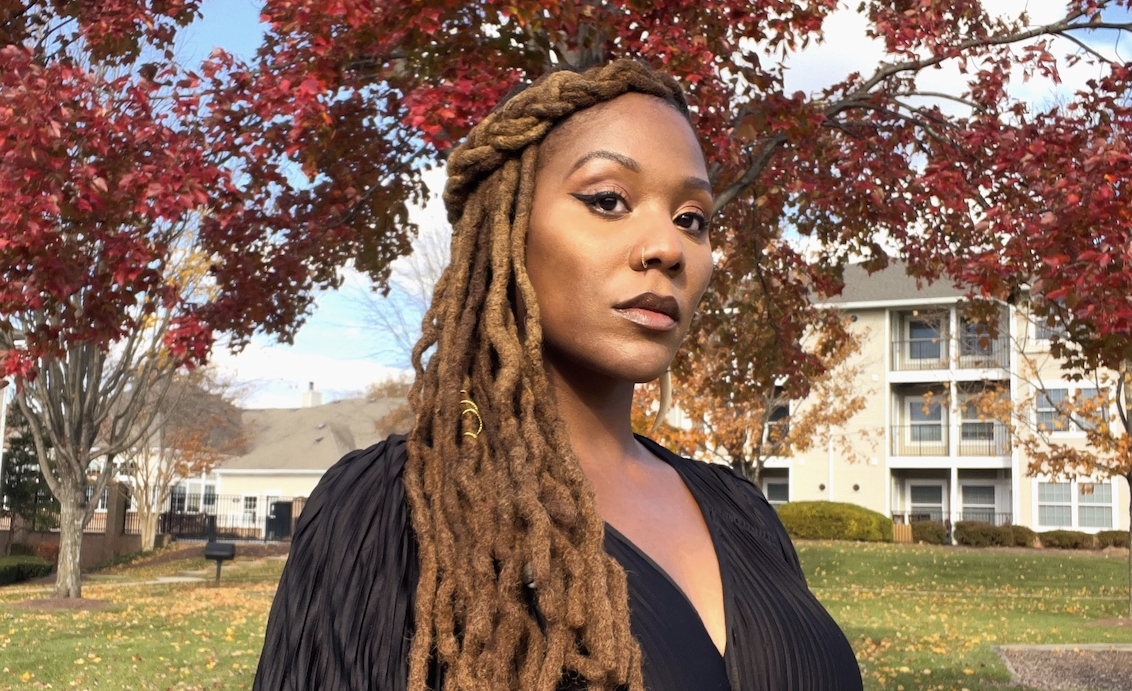
Raised in Atlanta to Sierra Leonean parents, the writer/director never misses the opportunity to put her rich heritage on display through her unique style of storytelling; making black women and people feel seen all over the world.
Jusu does this and more in her directorial debut ‘Nanny,’ which received the Grand Jury Prize at the 2022 Sundance Film Festival and made her the second Black woman director ever to take home the biggest prize at Sundance. Nigerian-American filmmaker Chinonye Chukwu became the first in 2019, with her prison drama, ‘Clemency.’
The movie is a visually stunning horror story about a Senegalese immigrant (Anna Diop) who cares for a white family in New York while dealing with unexplainable, supernatural forces. The nanny, Aisha, is hired by a rich white couple to look after their six-year-old daughter, working hard to make enough to bring her six-year-old son over from Senegal.
Inspired by the numerous nannies she saw in New York while studying at NYU’s graduate film school as well as the struggles and sacrifices of her mother, Hannah Khoury, who was also a domestic worker, Jusu delivers a moving psychological thriller that takes you into the heartbreaking, exploitative world of immigrants blended with parts of West African mythology like the trickster, Anansi the Spider, and the terrifying siren, Mami Water.
In this Pulse Exclusive, Jusu talks about her history-making Sundance debut, exploring West African mythology as well as focusing on women in front and behind the camera.
Interview has been edited for length and clarity.
Let’s first start by acknowledging your Sundance historic moment. How did that feel for you?
I didn’t expect it at all. Sundance has been so good to me. I know I sound like a walking Sundance ad, but they have brought attention to my work in a way that the industry has ignored. So with that win, the industry couldn’t ignore me anymore.
You have been making films for nearly 15 years. Why did you choose to make your directorial debut with ‘Nanny?’
There are pieces of my mother’s story in this. I am a first-generation American and my family is from Sierra Leone. My mom is highly educated, and I watched her sacrifice a lot to take jobs that I felt were below her in the States. That was the beginning but I knew I didn’t want to tell a straightforward drama. So I wanted to incorporate African folklore. I love horror, the darker genres. It was a combination of thinking about my mom’s story and thinking about the tools I wanted to play with as a filmmaker and an artist.
You make a lot of interesting decisions in ‘Nanny’ from the Miami water element to choosing to have a black American person have ‘gifts’ that are mostly associated with people living on the continent. What informed your approach?
Well, it’s very West African. In Sierra Leone, we also have mami water. Most African diasporic cultures have different names for these marine spirits. What I find interesting is that we are so wrapped up in colonization. The British brought Christianity to West Africa so a lot of us have parents who are hyper-Christian in the states. So, I think that having a black American woman who is a scholar know more about the spirits in this folklore than the African character made sense because we are so wrapped up in the religions that were brought to Africa versus what predates colonialism. You know, even the Arab slave trade brought a lot of Islam to the west. I am always thinking about where our history began prior to colonialism and being enslaved. We have so many stories.
Your work focuses on women and behind the camera, you have a lot of women too. Why is this so important to you?
Everyone wants to see themselves and those of us who love ourselves definitely want to be surrounded by people who are like us. I think women are just inherently and socially constructed to be more nurturing, more hardworking, and more community-minded. So, on set, I like working with people like that. I don’t like working with selfish people, especially with COVID, we were reliant on each other. If somebody catches COVID, the whole production is shut down. Using Rena Yang, for example, our cinematographer. She is a Japanese British woman. For her to ascend as high as she has, as a cinematographer, in a very male white male dominant career path, she has had to be 10 times better, in the same ways that I’ve had to be 10 times better. So, you are naturally working with people who are inherently good at what they do.
What do you want the audience to take away from ‘Nanny?’
We are very American but we are also very African. Depending on the spaces that we are in, like here, I am sure everyone is like, ‘Oh, they are Americans.’ But we are not the same Americans as people who don’t know where their lineage is from. It’s a very feminist film, so I’m also curious about the reaction from African women.
This movie is inspired by your mother. Has she seen it yet? What does she think?
Numerous times. She loves it, everything about it. My mom saw the rough edits. She has seen every part of the behind-the-scenes process, and she was on set for the party scene. She read the script as well as the revisions. She’s a writer herself, so she knows the project very intimately.
What’s next after ‘Nanny?’
I have a project with Monkey Paw, Jordan Peele’s company. It’s an expansion of my short vampire film that I made called ‘Suicide by Sunlight.’
Nanny arrives in select theaters on November 23rd and premieres on Prime Video on December 16, 2022.
 Top Naija News: Nigerian News, Breaking News Nigeria and World News Top Naija News is a daily news publication in Nigeria, delivering the latest breaking news in Nigeria and around the world.
Top Naija News: Nigerian News, Breaking News Nigeria and World News Top Naija News is a daily news publication in Nigeria, delivering the latest breaking news in Nigeria and around the world.


